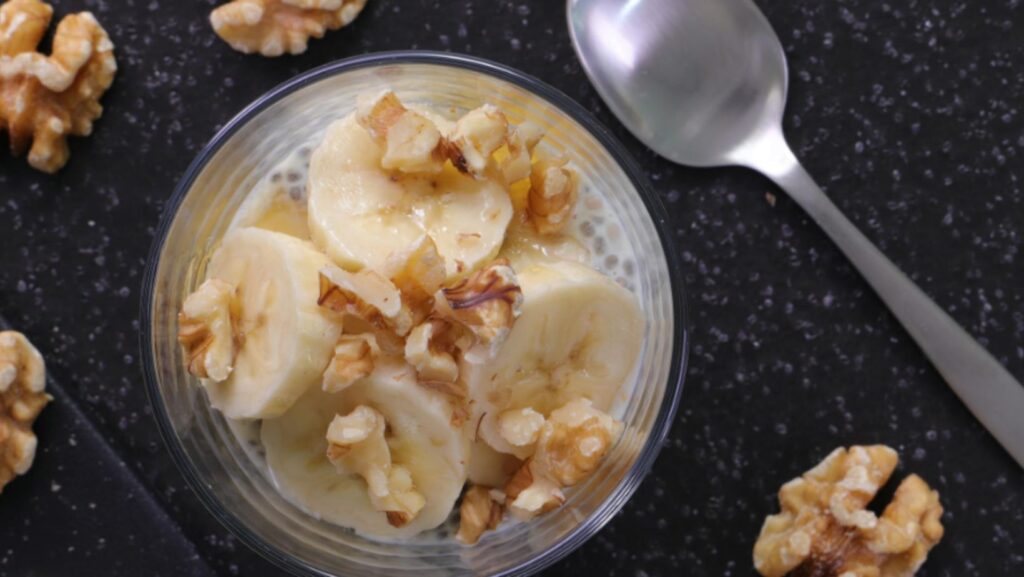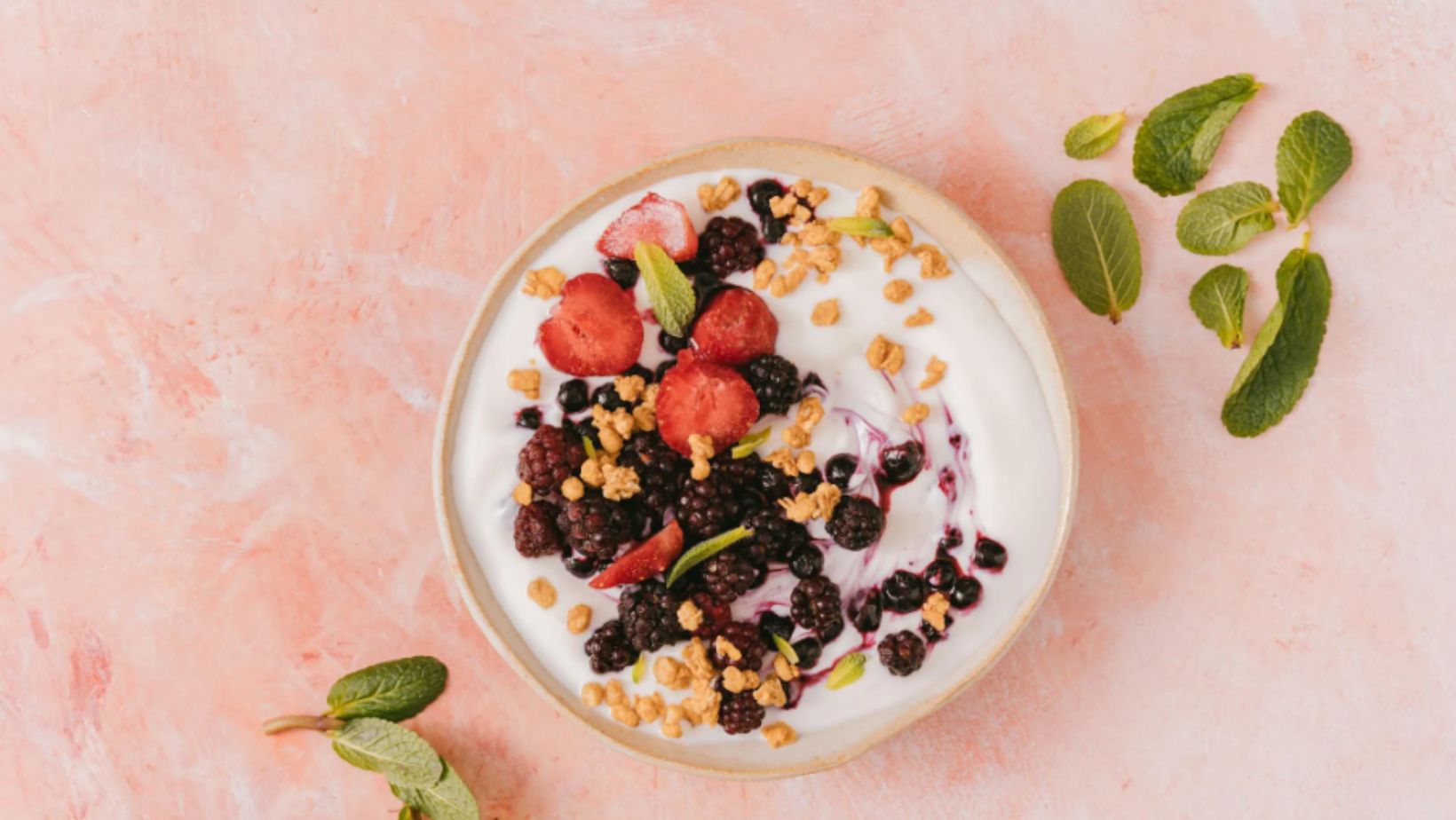Gut Health is Trending – Here’s How You Can Improve Digestion And Performance

Kathleen Benson, CSSD, CPT is a Certified Registered Dietitian at VNutrition specializing in Sports Nutrition, digestive health, PCOS and prenatal clients as well.
Gut Health is Trending – Here’s How You Can Improve Digestion And Performance
Kathleen Benson, CSSD, CPT is a Certified Registered Dietitian at VNutrition specializing in Sports Nutrition, digestive health, PCOS and prenatal clients as well.
Gut health protocols have gained significant attention in the wellness and fitness space for their role in well-being. But do they actually impact athletic performance? With a surge of misinformation, exaggerated claims, and unnecessary supplements, let’s explore the real connection between gut health, digestion, and performance, along with straightforward, effective strategies to support your gut health naturally.
The Importance of Gut Health
The term “gut” often refers to the stomach, small intestines, and colon—key organs in our digestive system. While the digestive system is mostly known for breaking down food to extract nutrients, it also plays a huge role in immune function. Gut health can impact everything from mood and nutrient absorption to energy levels—all of which are big factors in gym performance.
When something’s off with your gut, you might notice signs like excessive gas, bloating, or irregular bowel movements. But there are also red flags that point to more serious issues—things like blood in your stool, waking up at night to have a bowel movement, sudden changes in your bathroom habits, or unintentional weight loss. If you’re dealing with any of those, it’s a good idea to check in with a medical provider.
Inflammation is a buzzword in fitness, but it’s not all hype—especially when it involves gut health. Chronic intestinal inflammation, often tied to underlying medical conditions, can disrupt nutrient absorption, drain energy, and impact performance. While this isn’t a concern for most healthy individuals, maintaining gut health supports overall well-being.

Common Myths About Gut Health
A common myth is that fiber alone is all you need for gut health. While fiber is essential, maintaining a healthy digestive system requires a range of nutrients, including prebiotics and proper hydration. Prebiotics—found in foods like onions, garlic, legumes, bananas, and oats—act as fuel for our microbiome. Rachel Gargano, MS, RD, CSSD, CBS at Live it Up, recommends incorporating green powders that provide a complete source of fiber and probiotics, to help complement overall nutrition and address potential deficiencies.
Healthy bacteria can be supported through fermented foods like kimchi, sauerkraut, yogurt, kefir, and kombucha. If there’s an imbalance in your microbiome, a dietitian can help identify the right probiotics or dietary strategies for your needs since food alone might not always be enough. Hydration also plays a crucial role in digestion and regular bowel movements. While fiber isn’t the only focus for improving digestive health, it’s still a key player in a healthy gut, but should be increased gradually to avoid discomfort. Soluble fiber absorbs water, creating a gel-like texture that softens stool, while insoluble fiber adds bulk and helps move waste through the digestive tract. Think of fiber-rich foods like fruits, vegetables, whole grains, oats, legumes, nuts, and seeds.
Many gut health programs and supplements are marketed as cure-alls, but digestive health isn’t a one-size-fits-all process. For instance, prebiotic-rich foods like onion and garlic may need to be temporarily avoided to address imbalances, as in a low FODMAP diet—a short-term, tailored protocol.
Lastly, there’s a myth that the gut’s serotonin production directly affects mood. While serotonin is critical for mood regulation in the brain, most of it is produced in the gut, where it supports functions like mucus production and gastric acid regulation. While the same chemical, its location determines its function—a distinction often overlooked. Serotonin produced in the gut doesn’t cross the blood-brain barrier, so it doesn’t directly influence mood. However, the gut-brain axis may allow for indirect effects on mood through other pathways.

Expert Tips to Improve Gut Health and Performance
Tip 1: Incorporate Probiotics
Kat Benson, CSSD, CPT at Vnutrition recommends, in addition to fiber-rich foods, incorporating probiotic-containing foods like yogurt, kefir, and fermented vegetables (such as kimchi and sauerkraut) can help support a healthy microbiome. Although not all beneficial bacteria survive storage or stomach acid, many strains are resilient enough to reach the digestive system and provide benefits. For best results, try consuming probiotic-rich foods with meals to buffer stomach acid, giving these beneficial bacteria a better chance to thrive. You can check out VNutrition for more expert recommendations, along with delicious and healthy recipes
Tip 2: Stay Hydrated
Hydration is essential for breaking down food, transporting nutrients, and maintaining healthy bowel movements. Remember, you can also get significant hydration from water-rich fruits and vegetables, in addition to drinking water and other beneficial beverages.
Tip 3: Eat a Diverse Diet
Eating a variety of plant-based foods can help create a more diverse and resilient gut microbiome. Research suggests that aiming for 30 different plant foods per week can enhance gut health by feeding a wide range of beneficial bacteria.
Include a mix of fruits, vegetables, grains, legumes, nuts, and seeds to hit this target. For example, rotate between options like berries, leafy greens, whole grains, and beans, or experiment with different herbs and spices for added diversity.
30 Plants/Week Sample Plan
Kat Benson, CSSD, CPT at VNutrition, recommends a list that provides plant ideas to pair with meals. With this plan, you’re incorporating a diverse range of plant foods each week. For each meal, consider adding a protein source where needed to make it balanced. This approach helps meet your nutritional needs and keeps you fueled throughout the day.
Digestive health doesn’t have to be complicated, and it doesn’t require expensive supplements or programs. If you’re interested in supporting your digestive health, start small by trying one or two of these tips and build from there. A little focus on your digestive health can lead to better digestion, more energy, and improved performance.




